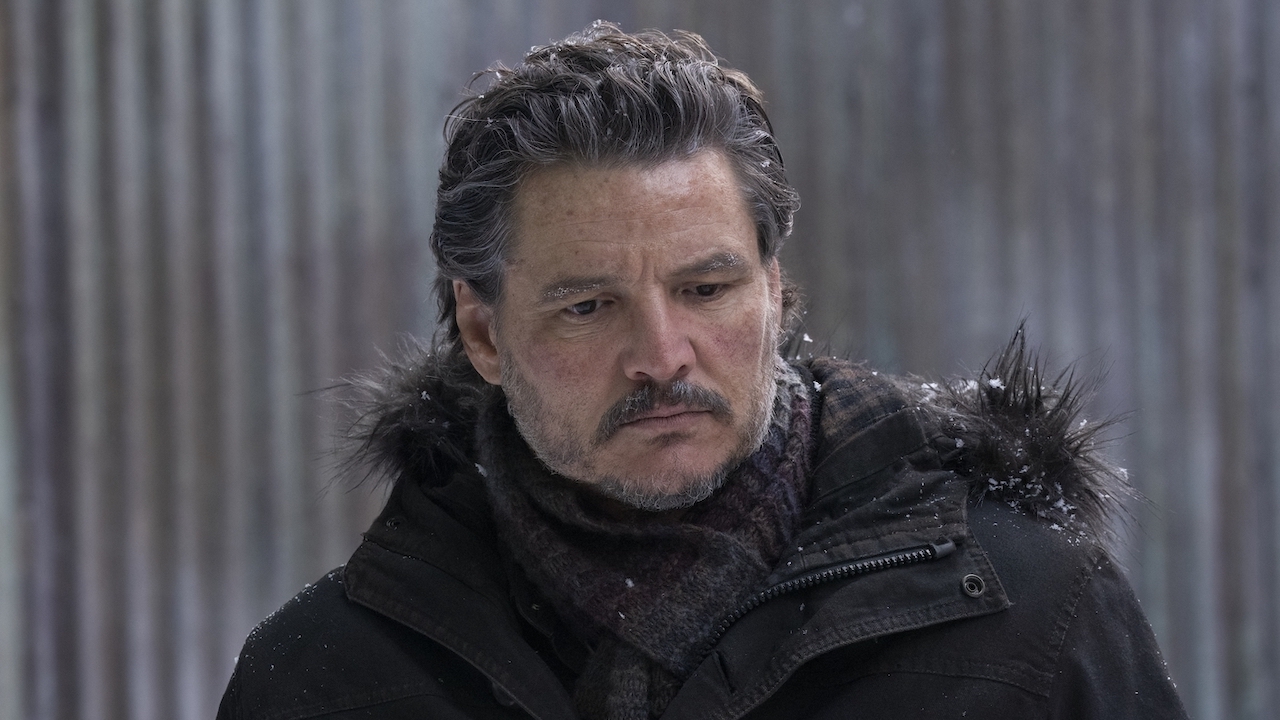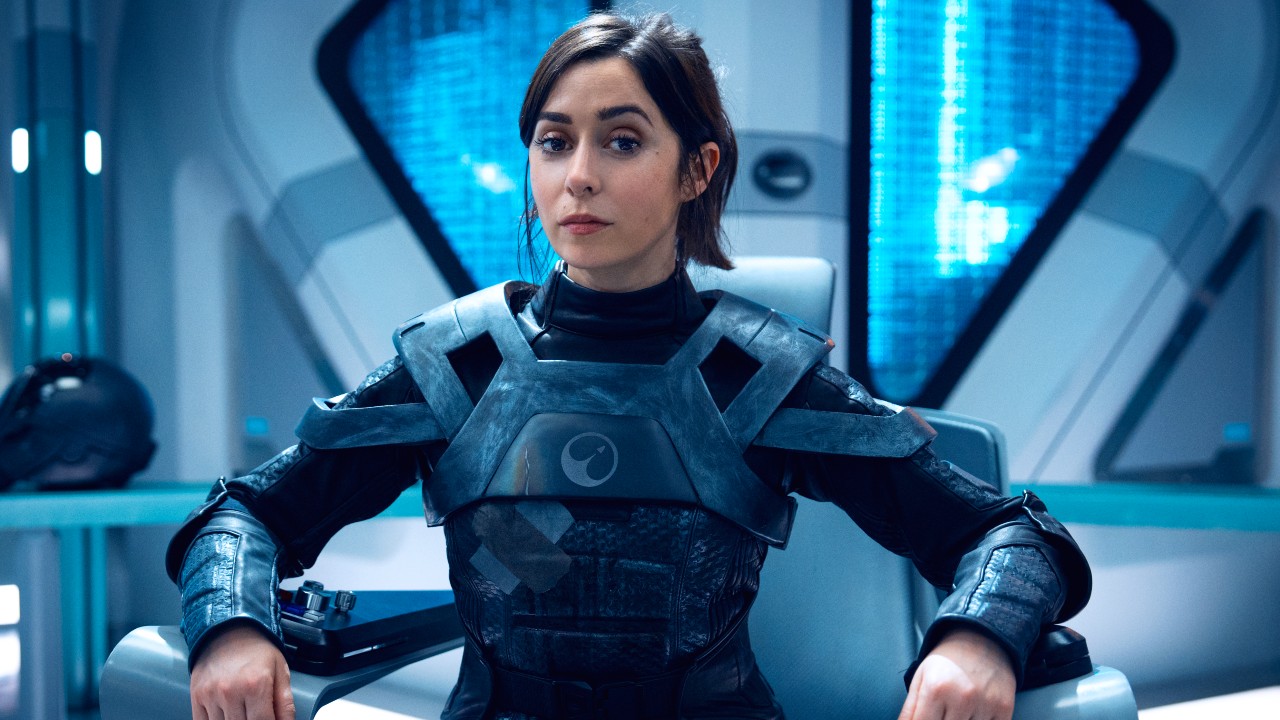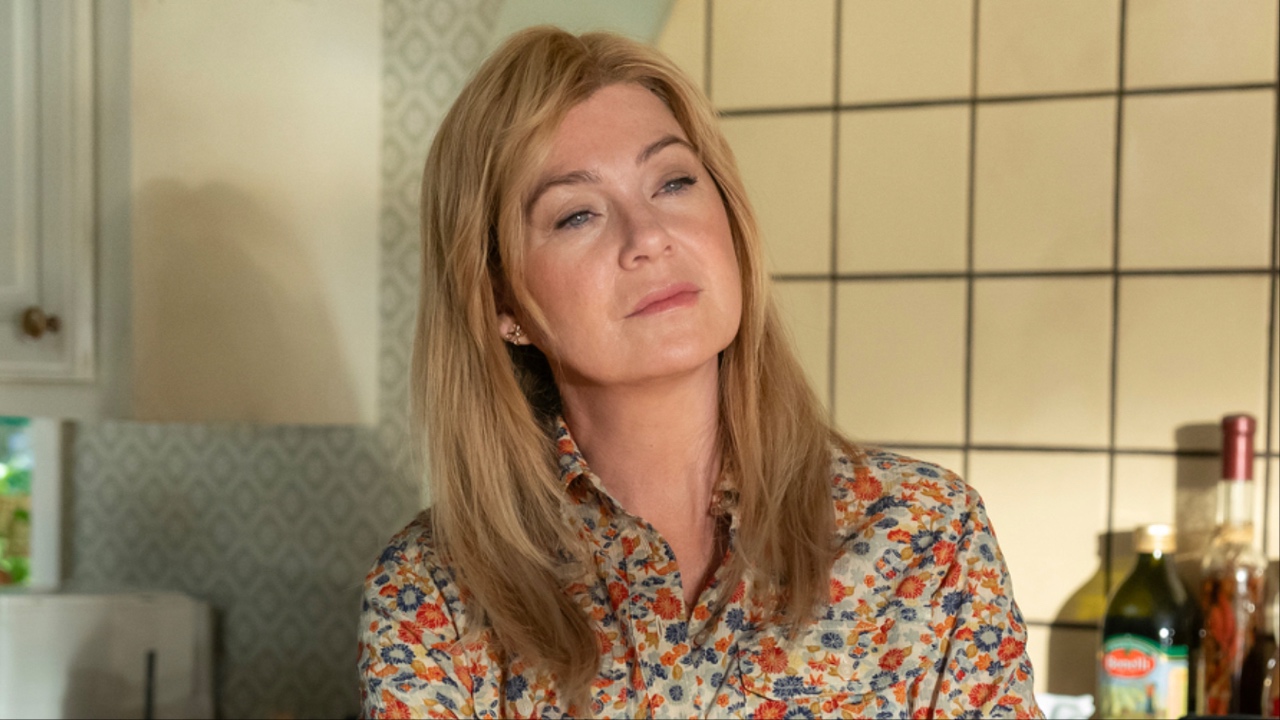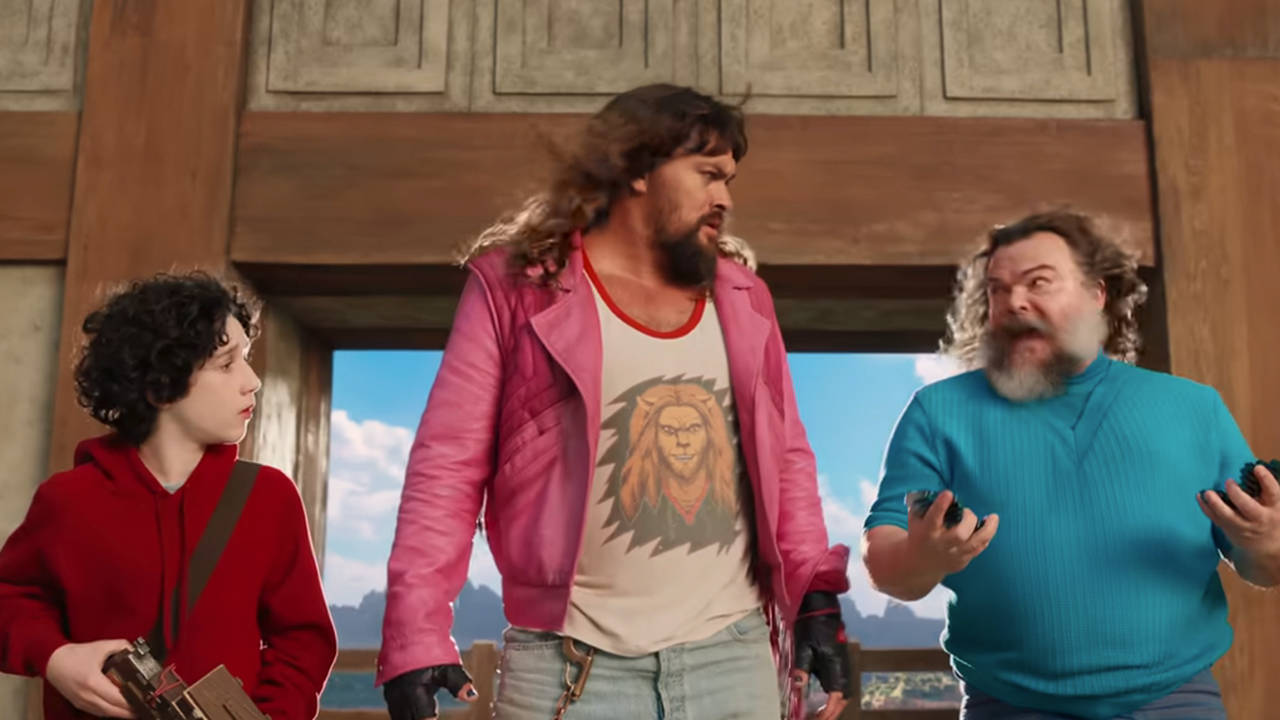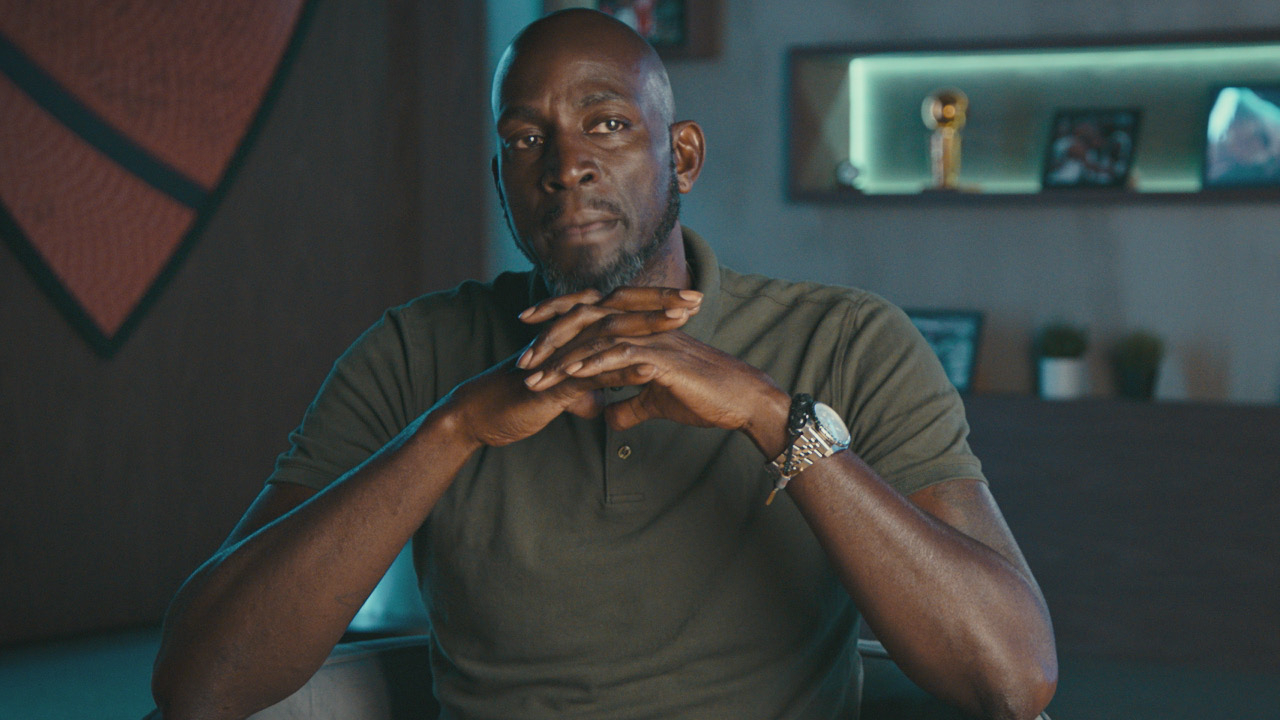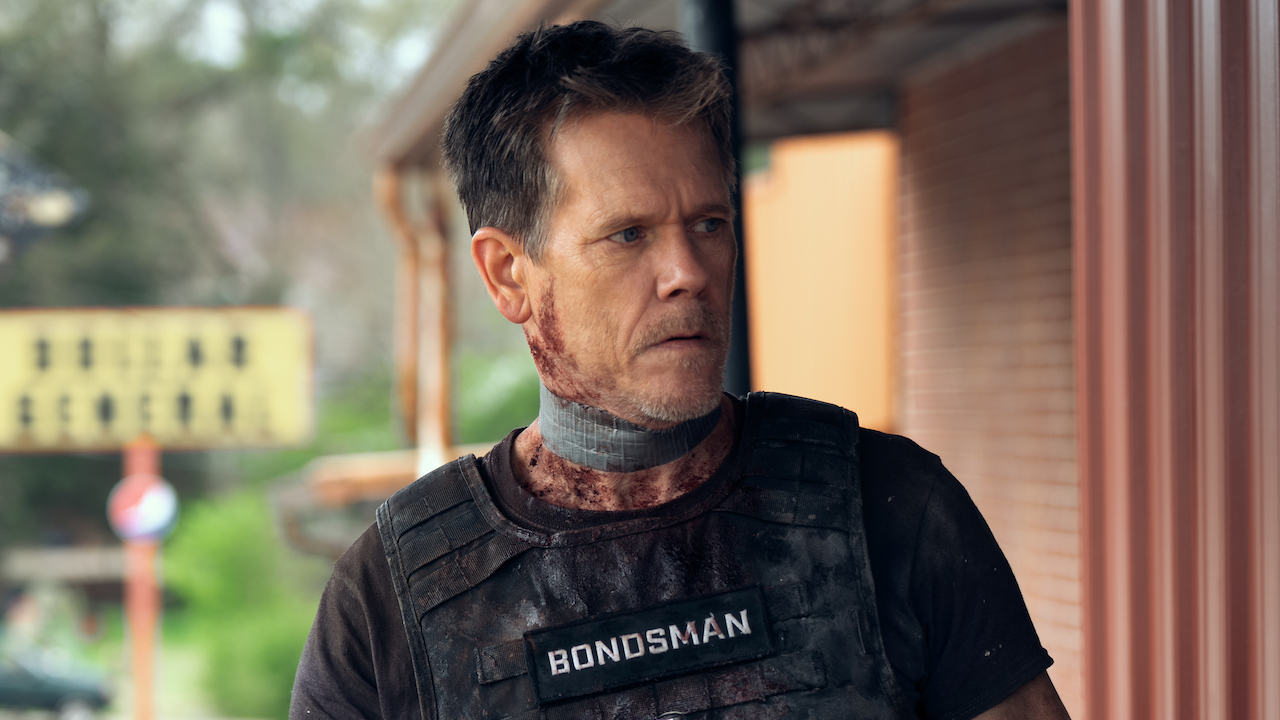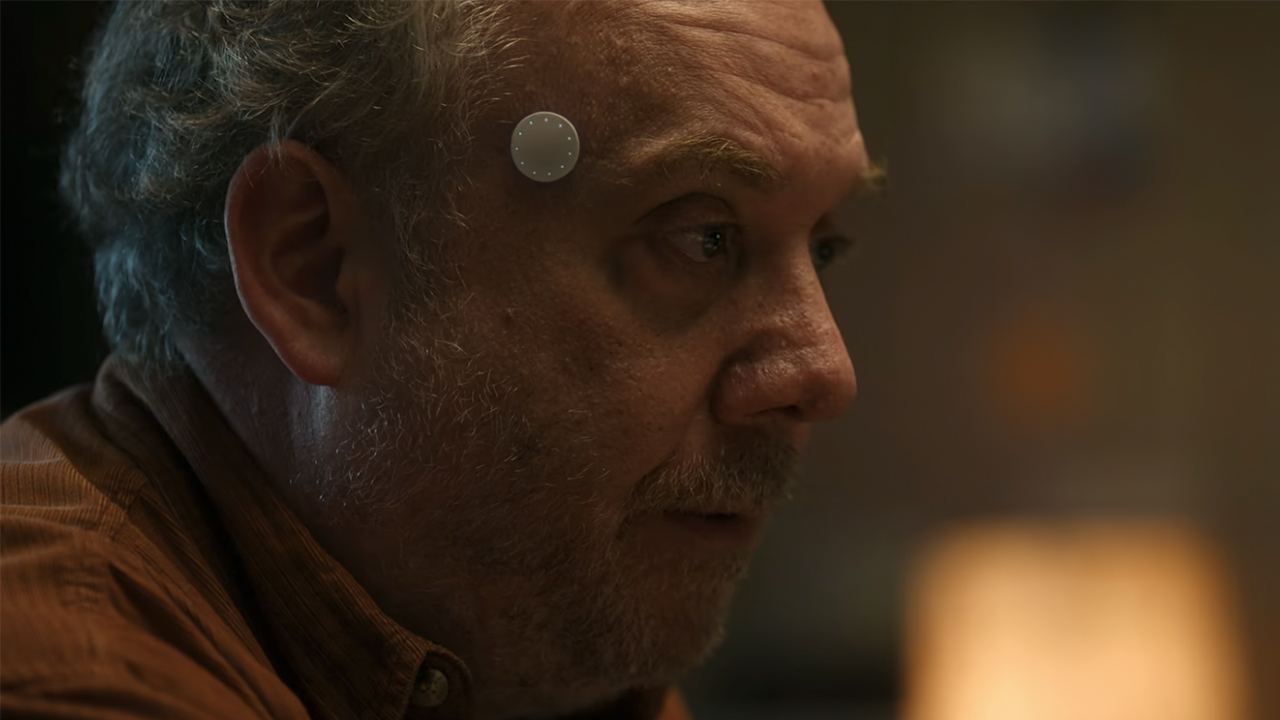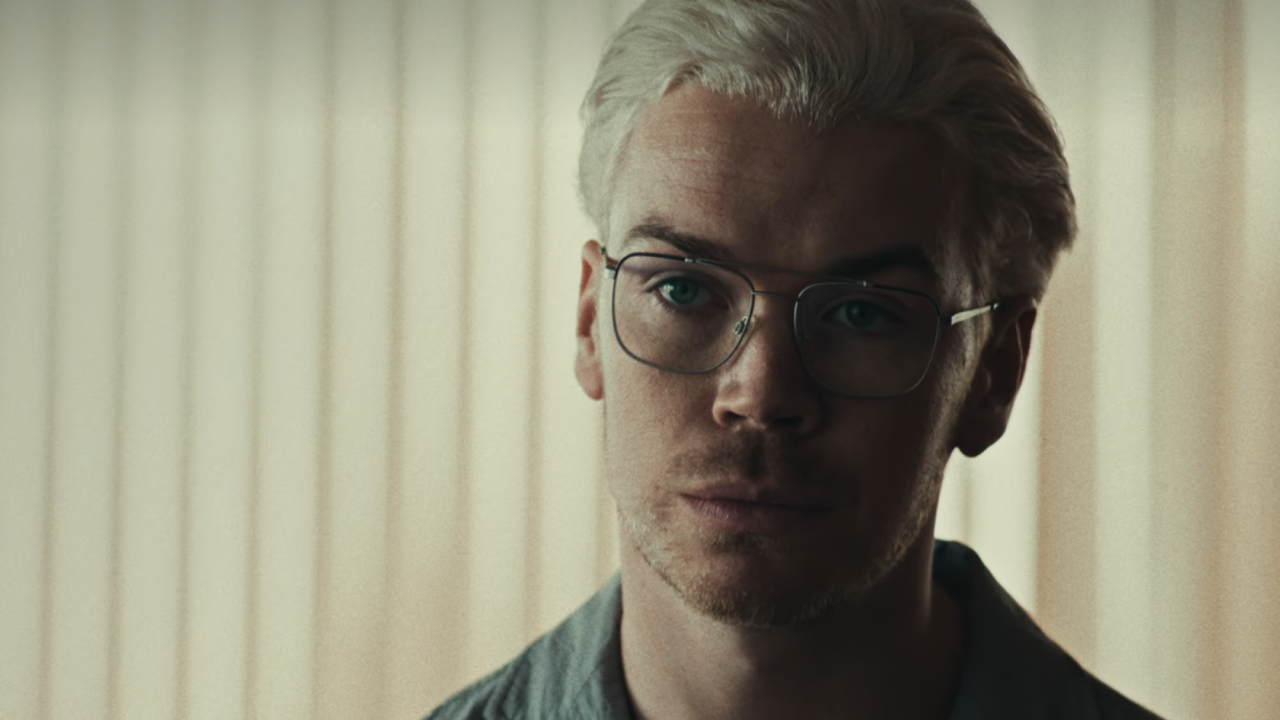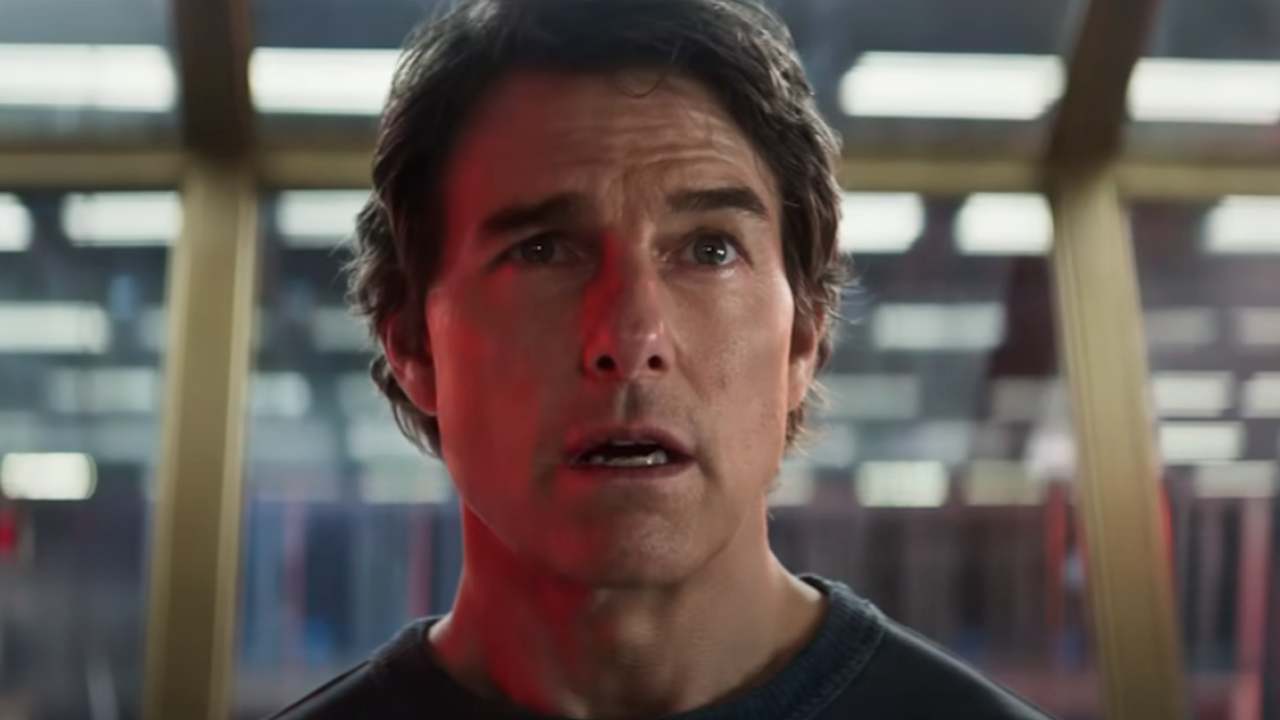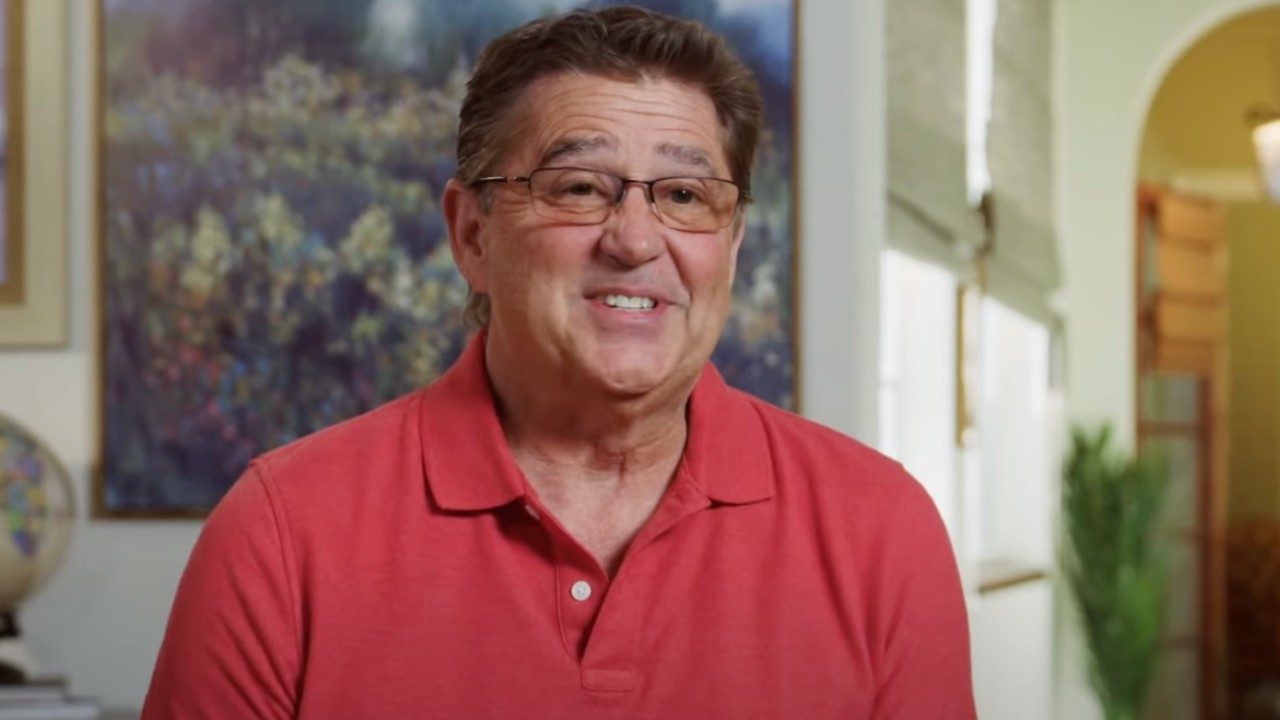Carla Gugino Opens Up About Her Spy Kids Legacy, Being Part Of Mike Flanagan's Masterful Ensembles, And A Possible Role In The Dark Tower
The more Gugino in every Flanagan story, the better.
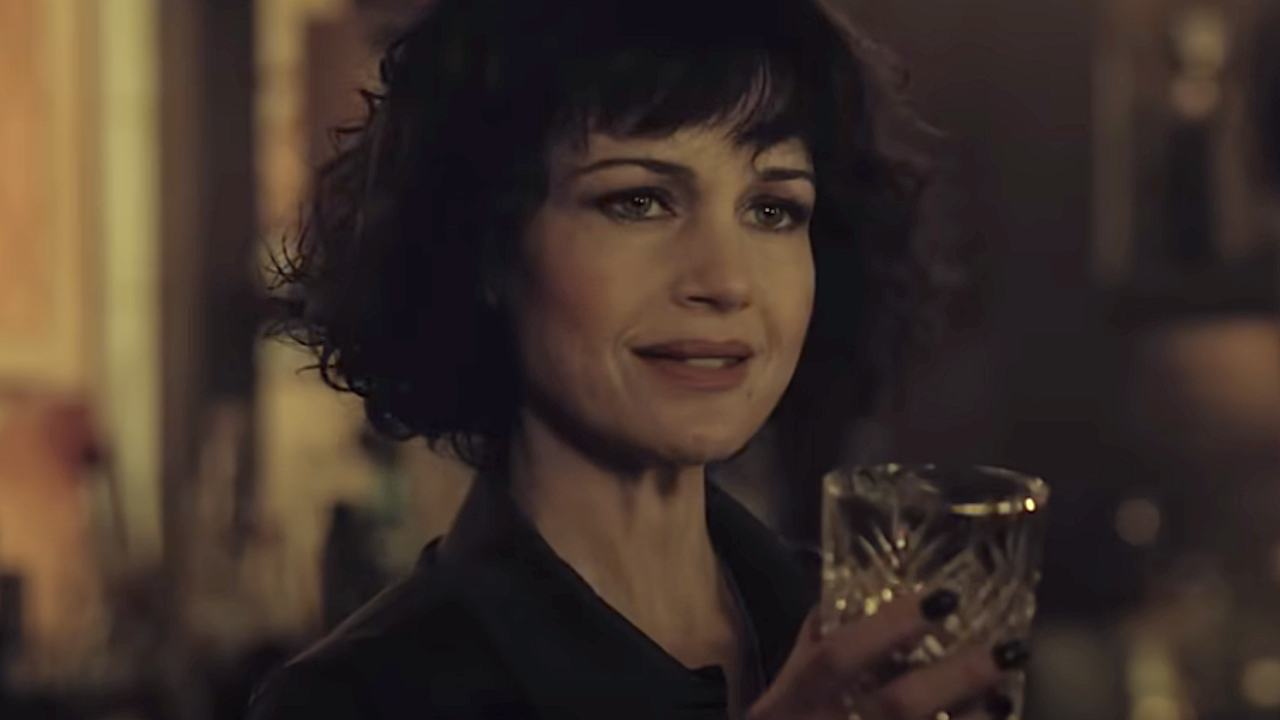
How do you know Carla Gugino? Your age probably factors into your answer. If you were a kid in the early 2000s, or are a parent (basically at any stage of your life), there’s a very good chance you recognize Gugino from Robert Rodriguez’s entertaining Spy Kids franchise, where she played Ingrid Cortez, mama to Juni (Daryl Sabara) and Carmen Cortez (Alexa Vega) and saver of the planet on more than one occasion.
Because the Spy Kids fandom continues to grow – and also mature – Gugino tells CinemaBlend that it’s getting harder for her to guess which of her many projects a fan is going to mention when they encounter her out in public.
What's interesting is that now, 25-year-old kids – who aren't kids anymore, who are totally adults – come up to me and are like… in fact, it happened when I checked into the hotel that I'm staying at. The person who's bringing my bags in the middle of the night was like, ‘You ARE the mom from Spy Kids!’ That was fun and funny, and I didn't expect it from him. So my Spy Kids Spidey Sense is starting to get a little bit less (clear).
Others probably know Gugino from a series of films you wouldn’t want to show your kids – not just yet, at least. Gugino frequently works with revolutionary filmmakers who push the envelope when it comes to visual storytelling, be it Zack Snyder (Watchmen, Sucker Punch), Rodriguez for the Sin City films, and Shawn Levy (Night at the Museum). And as of late, Gugino has been a proud member of the prestigious acting troupe that assembles every time genius writer-director Mike Flanagan has a new story to weave.
The duo’s collaboration dates back to 2017, when Carla Gugino allowed herself to be handcuffed to a bed for Flanagan’s adaptation of the Stephen King novel Gerald’s Game – still one of the best King adaptations ever attempted. The experience proved so rewarding for both sides, Gugino found herself playing pivotal roles in The Haunting of Hill House, The Haunting of Bly Manor, Midnight Mass, and the series that several critics are calling Flanagan’s masterpiece: The Fall of the House of Usher. Collectively, it’s some of the strongest work to reach the Netflix streaming platform, and it’s redefining how storytellers should approach genre storytelling. As Gugino told me during a recent interview:
What's so cool about what Mike always wants to explore – because, of course, you know his work so well – this has much more black comedy. It's bigger and bolder, it's dealing less with certain nuances than something like The Haunting of Hill House, which was dealing with family trauma and generational trauma. But it still is always examining the big themes, like karma and accountability and self-examination and empathy and all of these things. I just love that he never wants to go this simple route.
And by following Flanagan down his complicated paths, Carla Gugino now finds herself on the receiving end of some awards consideration, for the first time in her career.
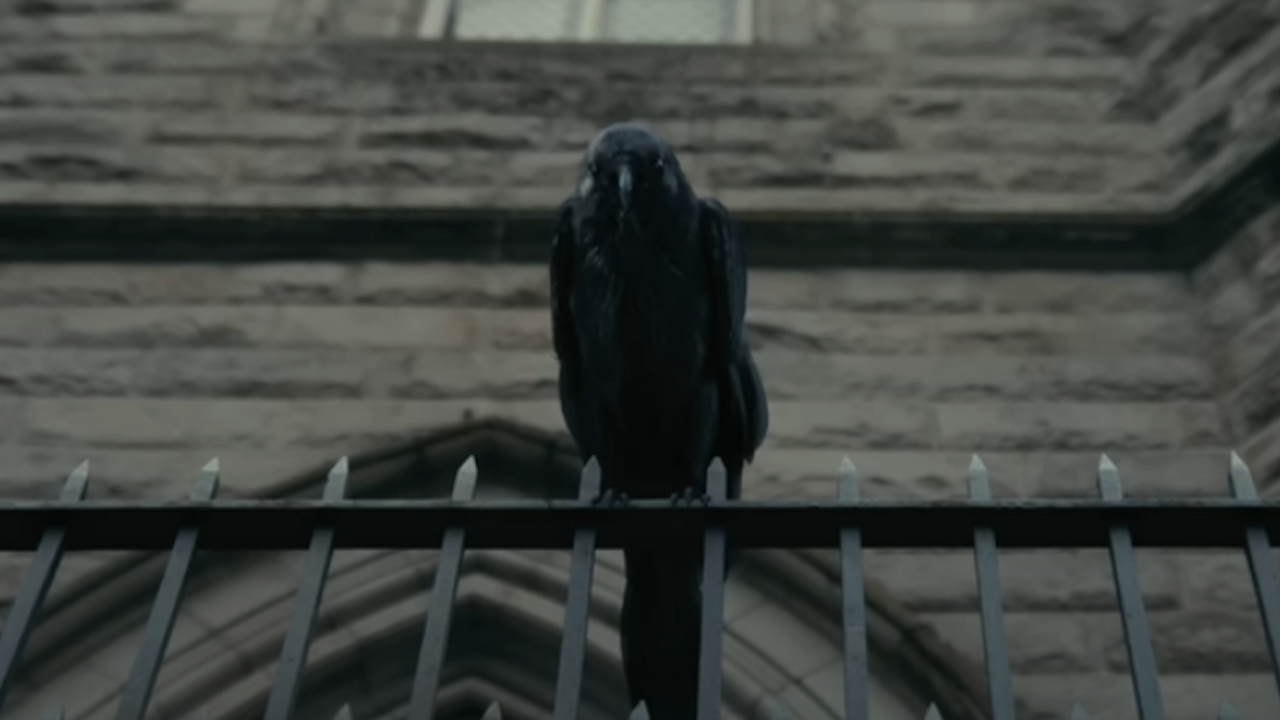
Quote The Raven...
Mike Flanagan’s The Fall of the House of Usher masterfully figures out how to interlock several classic Edgar Allen Poe stories underneath the umbrella of one larger arc, this one having to do with the rise and fall of Roderick Usher (Bruce Greenwood), his sister Madeline (Mary McDonnell), and Roderick’s six adult children. Gugino’s mysterious character isn’t related to the Ushers, though she plays a pivotal part in their narrative. Her character, Verna, surfaces throughout each individual story, shepherding characters to their grisly fates.
There are countless questions swirling around Verna, and most get answered over time. If you are frustrated by how long Flanagan makes you wait for some explanations regarding this character, just know that Gugino was in a similar boat. The writer-director let Gugino read scripts as they became available. But too often, she was up to date, and waiting for the rest of the saga to play out. She told CinemaBlend:
CINEMABLEND NEWSLETTER
Your Daily Blend of Entertainment News
As it started unfolding, the excitement and the thrilling nature of being able to be given this challenging opportunity was rising. And by the time I finished all of (the scripts), I was just simply terrified as to how I was gonna pull it off. But what became really clear was that each one of these incarnations, that mystery was innate, of course, which is what you're talking about. And that each one of these wasn't a different person, but had to have this, I started sort of calling it this golden thread. Each incarnation of Verna had to be connected, somehow, to her. So she would obviously manifest in a certain way how one person can see her or receive her, but we always feel her inside.
This gave Gugino the role of a lifetime, with range to spare from episode to episode. Verna – an anagram of Raven – could appear as a courteous bartender working New Year’s Eve in 1979. Or as an animal shelter worker. Or as a sultry nightclub patron.
To Gugino’s remarkable credit, she’s believable in every single role. She credits the writing, but also breaks the code to her approach to Verna when she elaborates:
She's such a larger than life character, that she didn't need to be played larger than life because she's hiding in plain sight. Right. And so I think that was something I started to really go into. Because there was no dialect written into any of these characters. And so I started sort of seeing – what was really clear was I didn't want it to be any kind of a hair, costume, accent show. It’s not about dazzling them. It's about seamlessly fitting in.
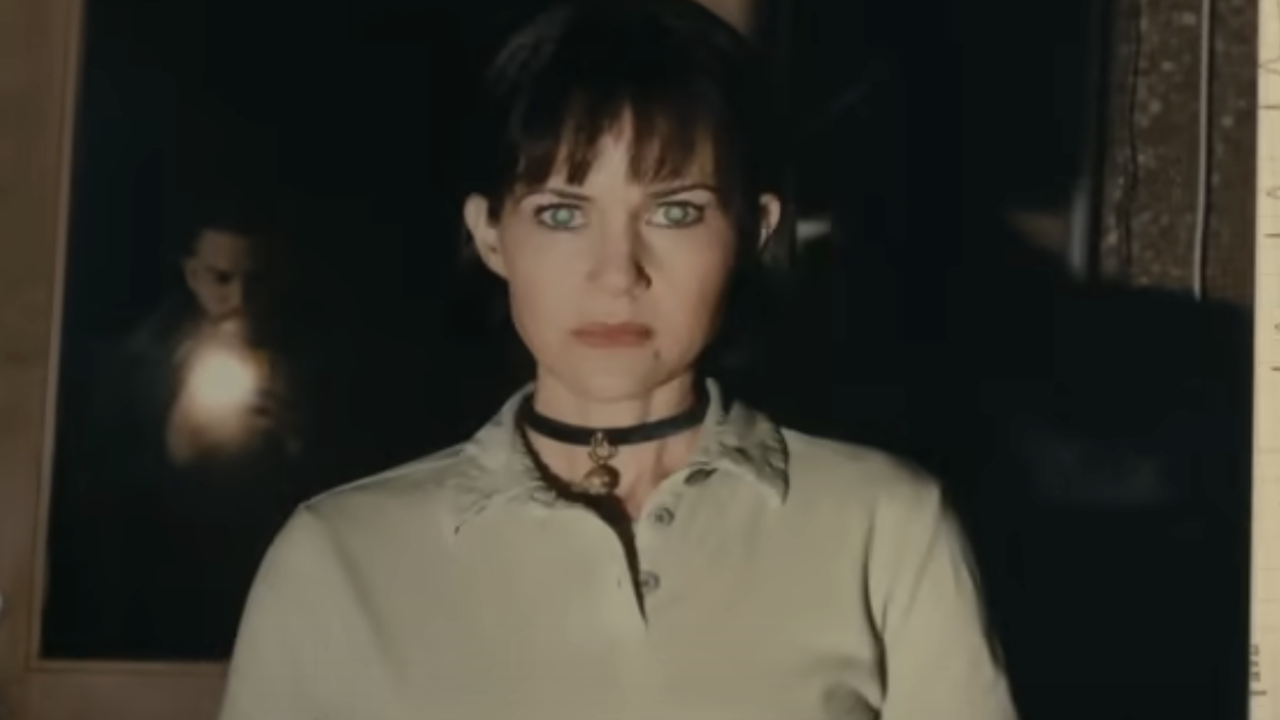
The Tell-Tale Heart
She may not have intended to “dazzle” with her performance, but that’s the effect Carla Gugino is having on critics and audiences. Our own Nick Venable refers to The Fall of the House of Usher as “possibly (the) greatest horror masterpiece yet.” And a lot of that boils down to the writing. The way that Flanagan structures Usher, there’s hardly any wasted time, no superfluous narrative addition, and hardly any suggestion of reshoots of deleted scenes. As on display in Hill House, Bly Manor, and Midnight Mass, Flanagan appears to meticulously construct his epic stories so that they lock together like a satisfying puzzle. And Gugino says that tends to be the case on set with the writer-director. She tells CinemaBlend:
It's extremely rare. I was really surprised when that happened. I think also because he began as an editor, he is razor sharp in regards to – he already has it cut in his mind, to some extent. It's not that he is not open to something surprising him. And again, I find that to be the case with assured filmmakers, which is that they have a gently strong hand, in his case, this kind of gentle perfectionism and leadership. But he also therefore leaves you room to really play and offer up things.
It’s important, however, for each episode of The Fall of the House of Usher to build toward its extremely satisfying conclusion, knocking off Roderick’s children in each episode, some in more gruesome fashion than others (yes, we are talking about the party scene at the end of episode 2). Improvisation is one thing. But the real joy of following a Mike Flanagan story arc is just how precise he is in his pacing and execution. It’s like a well-wound clock, and it benefits his actors, as well as his audience.
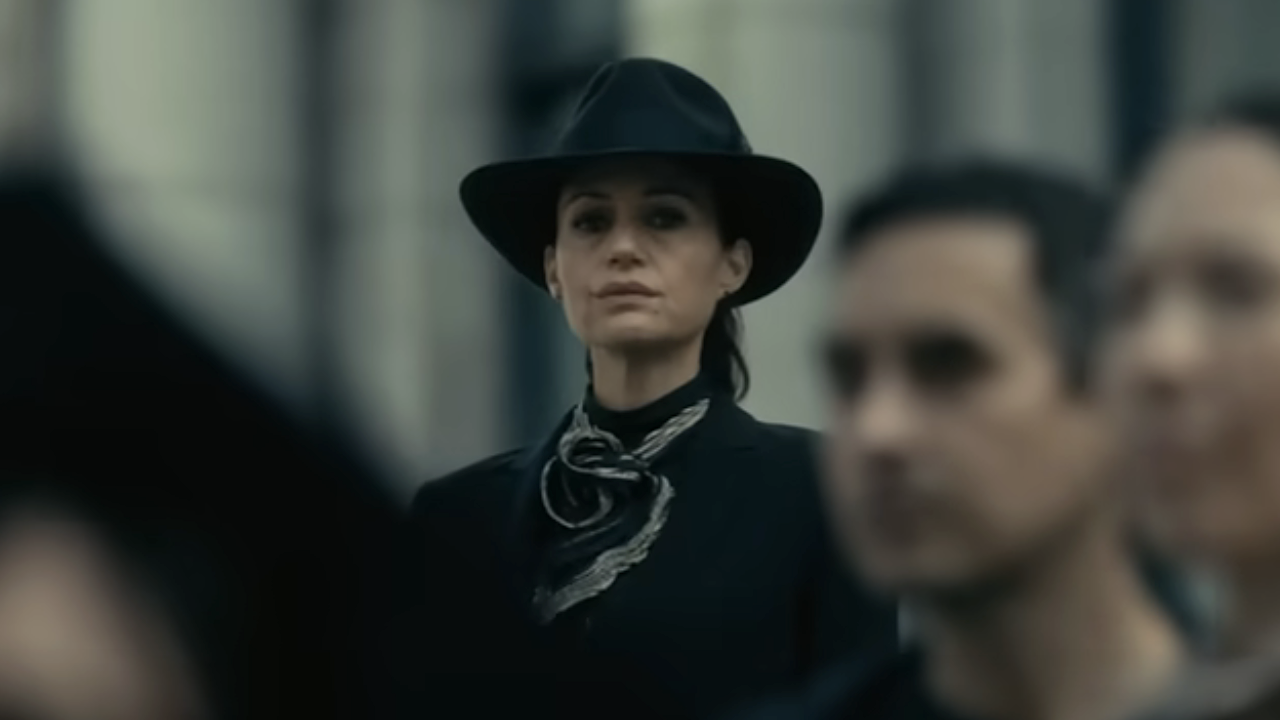
The Tower Beckons...
The Fall of the House of Usher is up for three Critics Choice nominations this weekend, with Carla Gugino, Willa Fitzgerald, and Mary McDonnell all competing in different categories. Gugino is up for Lead Actress in BEST ACTRESS IN A LIMITED SERIES OR MOVIE MADE FOR TELEVISION. He co-stars are in SUPPORTING. The best case scenario is that they manage wins in both categories, as each is deserving of recognition for their incredible work on the series.
Which probably is fine with Gugino. For as she explains to CinemaBlend, the members of Flanagan’s professional troupe are all just instruments in the orchestra that he is conducting. She said:
Mike was talking about how this show, and this ensemble – when we were on set one day, he was saying that all of the notes are like a symphony. And then he was saying (that) it's interesting because Verna is like her own symphony. But that, again, I think that was the key with this kind of character. It still very much needed to play in the same symphony as everyone else. And yet, the role required its own sort of soundtrack, so to speak. So it was a really fun and interesting challenge in that way, because I do think there's not a single actor in that ensemble that isn't absolutely fearless.
Which is why they keep coming back to Flanagan’s family for more. I would, too, as an actor being given a chance to work with one of our modern masters. You likely can count on Gugino to say yes any time that Flanagan calls. Even for his highly anticipated tackling of Stephen King’s massive The Dark Tower series. Before we concluded our conversation, I had to ask Gugino if she was picking up copies of King’s novels in preparation. She laughed and told me:
Indeed. Indeed!
And when I suggested that Flanagan would be wise to just cast his Gerald’s Game collaborator as Roland, the Gunslinger, Gugino gave me the best answer possible when she said:
Bring it! I’m ready!
So are we. If you haven’t yet seen The Fall of the House of Usher, it’s a masterpiece and it’s waiting for you on Netflix. Drop everything and watch it now.

Sean O’Connell is a journalist and CinemaBlend’s Managing Editor. Having been with the site since 2011, Sean interviewed myriad directors, actors and producers, and created ReelBlend, which he proudly cohosts with Jake Hamilton and Kevin McCarthy. And he's the author of RELEASE THE SNYDER CUT, the Spider-Man history book WITH GREAT POWER, and an upcoming book about Bruce Willis.
